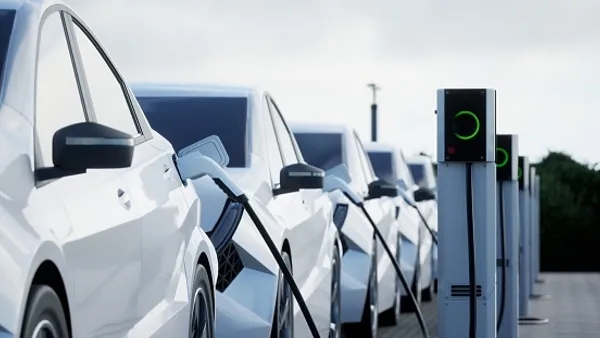Dive Brief:
- The rise of electric vehicles may come with increased cybersecurity risks to the grid — multiple high-wattage charging stations could be used in tandem to launch an attack and potentially cause a blackout, according to a new analysis from New York University's Tandon School of Engineering.
- Researchers scraped public data from the U.S. Energy Information Administration, New York ISO and other sources, finding that Manhattan could be susceptible to an attack by just 1,000 simultaneously charging electric vehicles.
- Such an attack is not possible at current EV penetration levels, the report concludes, but may be in the future. According to Bloomberg New Energy Finance, EVs will represent 28% of global light-duty vehicle sales after 2025.
Dive Insight:
The intricacies of just how the hack could be carried out are complex, but include "a data-driven attack strategy" that utilizes "partial eigenvalue relocation." More broadly, the report shows that increasingly-interconnected grids are creating new vulnerabilities.
"This simulation is a wake-up call to the public and policymakers, and an encouragement to take steps to protect the data generated between electric cars and charging stations — most of which could be co-opted by a hacker with college-level skills," Yury Dvorkin, an assistant professor in NYU Tandon's Department of Electrical and Computer Engineering, said in a statement.
The study focused on the use of publicly-available data and high-wattage charging stations. The charging patterns of plug-in vehicles (PEV) at public stations are reported through smartphone applications, researchers said.
"Demand-side cyberattacks are possible because many high-wattage appliances have communication and control interfaces forming an Internet of Things," the report concludes. "While such an attack is not possible at the current penetration level of PEVs, it will be practical once the number of PEVs increases."
There are more than 1 million EVs in the United States right now, but the number is expected to grow rapidly. The Edison Electric Institute has projected 7 million of the zero-emissions vehicles will be on U.S. roads by 2025.














